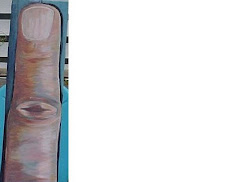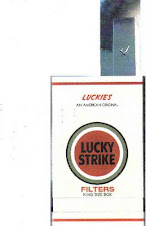The Herrenvolk's idea of Entertainment:
Party Hardy with CharredLize
 |
| M&M's: Mechanized Murder; Maniacal Mayhem; Movie Madness. That hard candied coating that keeps us impervious to the pain we inflict on others. |
NYT's David Leonhardt:
"Gilbert Cruz, The Times’s Culture editor, is offering recommendations for stuff you should watch. Today, he chose the post-apocalyptic thriller “Mad Max: Fury Road”:
“I probably should watch ‘Mad Max: Fury Road’ every year given how singular and impressive it is. (Maybe we all should.) I was spurred to do so this week, though, by a massive oral history of the film’s production by The Times’s Kyle Buchanan.
“Starring Tom Hardy and Charlize Theron in intense, nearly wordless performances, ‘Fury Road’ remains an absolutely bananas action movie — large vehicles, driving fast across the desert, exploding, flipping, crashing, people jumping between, over and in front of said vehicles — that is completely engrossing. I laugh and cry during movies all the time. But it is rare for me to just sit there, agape, mimicking the open mouth emoji for two hours.”
Having just finished Nelson Algren's Never Come Morning the night before (or more accurately, earlier this morning, as I was shocked to see it was 2:30 AM before I gingerly placed the text on the night stand), I powered up the PC this morning and saw the above "recommendation" from the "culture" editor of the NYT's and it just brought me down that much lower. You see, when I see even that photograph from the film, that still, that clip, I think of the still-born we leave in our wake, the gun clips strapped to soldiers' torsos that are designed to spit death at random at our fellow human beings, and they mostly remind me of this:
Our Mission? To deliver WMD to the Needy of the World.
 |
| Are we Great yet? I'll say Yemen to that. |
As death looms in Twilight's growing darkness, stalking menacingly immediately outside our door while the country clamors to invite it inside, our newspaper of record recommends that we watch bloodbaths for fun and games, revel in destruction to get our jollies, harden that shell we've so carefully erected around our hearts with another layer of shellac while we enjoy yet another display of modern mans' descent into madness, as though moviedom's glorification of heartless horror is totally disconnected from our casual cakewalk through the bombed-out world we've bequeathed our "enemies", having successfully bombed them "back into the stone age" loosing an Armamenteria only the Jetson's could be hiding under their lofty high-in-the-sky nests onto the Flintstones, grubbily earthbound and dust-covered, their huts shabby, their transport clunky. Perfect setup for a nation of cowards to bomb the bejesus out of simply because the chance of retaliation is exactly zero. And we'll feel so much better in the morning.
Sometimes I envy you. That you're OK with it. More than OK; you feel great again. Great.
Once it only took Tony the Tiger. Now it takes deploying Raptors. Dropping ordnance the size of a house. Firing missiles to scream through a silent sky to shatter bodies so completely there's nothing left but a pink mist covering the desert floor, naked body parts littering the landscape. Fury Rode, while compassion limped along, eventually disappearing as it was left in a cloud of Humvee dust. "You're Killing it". Great.
"Beautify! Beautify!"
Lady Bird Johnson couldn't even tolerate the litter along America's highways. Even as her husband's forces were dispatched to Asia to "Kill anything that moves" along the Ho Chi Minh Trail. The Mekong Delta is reedy when you are. Body counts were tallied and daily posted on our newspaper of record's front page. They proved we were getting a good bang for our defense buck.
That era shared a lot with both the WW2 era and our current era: a pervasive sense of preventable loss. Bodies tossed onto carts as they rumble by are now replaced with A/C'd trailers loaded with body-bagged corpses, glad bags turned to cad - as in cadaver - bags.
Algren 's novel is set in early WW2 Chicago, '42, and is peopled by Poles who mock Jews, jigs and shell-shocked rejects; by pimps, whores and denizens of the boxing underworld, its hero a rapist and murderer who hands over to a mob of miscreants the friend of his youth, Steffi, who has put her trust in him only to be betrayed so brutally she ends up as shell-shocked as the mental prisoner-of-war, Snipes. Her boyfriend Pole, Bruno Lefty "Biceps" Bicek, a boxing champ, if only in his own mind, who is so disgusted with his lame self at the perfidy of his own behavior and the cowardice it reveals, he lashes out at a Greek waiting in line for his turn, who, sensing Bicep's vulnerability rubs a little salt in the wound by confiding that,
"I'm gonna do pen'nce for this afters' Left'. I got no place t' go."
But Bruno turns on him.
"Beat it Sheeny, this is a white man's party."
Why had he had to throw that in? What if the fellow had a knife?
"Make half those gorillas stay out of it and I'll show you who the white man is." The line dissolved behind him to give the Greek room. Bruno stiffened as he heard Steffi call him from below. No, not him, but calling. His fingers spread tensely, uncertain that he had heard or imagined it, till it came again.
"Next!", he heard her call. And she was laughing a laugh like a single drawn-out sob, hard as a man in handcuffs laughs.
"Next! Next!"
The Greek's shoulders were bound by his sleeves as he stretched them back to slip his coat off, so Bruno smashed him in the face. The boy jerked his hands up in haste and wiggled as he felt himself still bound. Bruno cupped the boy's jaw in both hands as he struggled, set it for the left and swung from the pavement: The head jerked back and the boy slipped down the side of the telephone pole, trying to grasp it with his bound hands. Bruno listened. But she did not call again.
He felt the boys behind him coming up, and saw the Greek trying to raise himself. He'd gotten onto all fours, his forehead against the alley pavement, bracing himself with his forehead. When he got his elbows beneath him Bruno heard Bibleback whisper anxiously behind him:
"You goin' down again yerself, Lefthander? I ain't been."
For reply Bruno brought up his foot as though converting a point after touchdown: the point of the boot caught the point of jaw. They all heard the snap, like the snap of a brittle reed. They all saw the supporting forearms fold and saw him roll on his side. They stood, looking blindly down, a dozen bald-headed Poles with a warehouse shadow across their skulls.
There was no sound from below. There was no sound from above. As though the last El had crashed and the last trolley had finished its final run. Only the beat of the powerhouse, the heavy throb through the city wires: and the blind wall waiting before them. Then they ran."
The scenes that follow, depicting two of the gang left behind downstairs with "The Duchess" to the mercy of their mocking jibery, "Sweetheart. At last. Fergive me. Marry me 'r be my wife." (Skinny thing though. Could feel her ribs). "I bet your Ma washes yer clothes on ya - uses yer ribs fer a washboard I bet." She was drunk as a judge. So they took her to the local madam, after deciding that dumping her in an alley might mean trouble with that Greek layin' back there on his ear ...
See why I was kinda despondent this morning? A lot happens after this, but as the story comes to the conclusion, it's Steffi and Lefty again. I had to go back to reread this scene, because I couldn't believe it could possibly be the same woman. Because as sad as the murder is in its casualness, as disturbing as the scene belowstairs is in its dismissive disposal of Steffi once they've all had their way with her, it is her forgiveness, her collapse into his warm arms before he goes to his championship fight that was even more depressing. Forgiveness is sometimes hard to countenance.
But during the final fight scene that finishes the book, we're made privy to Lefty's thoughts as he somehow holds up under an incredible "Raging Bull"-style thrashing from which he nevertheless emerges victorious, the reader comes to begrudgingly understand the attachment to the man that lets Steffi contemplate marriage to him. "Everything was going to be all right after all." (Poor dear). It's Algren's best writing. I'd been managing a coulpa pages a night, but last night I just couldn't stop. That love can endure through such squalor and degradation, such hopelessness and fatalism, extends a thin reed of hope to a reader sinking amid this quicksand of human depravity. Isherwood's The Berlin Stories' flash and the Divine Decadence of Sally Bowles had no substance compared to the weight one murder leadened the lives of Algren's characters with, relentlessly leading to the sad conclusion you knew it was working toward: Biceps' arrest. Right after his victory. He didn't even make it out of the gym. As they escorted him out the door he spoke softly, looking down at the air holes punched between the toes of his outworn tennis shoes.
"Knew I'd never get t' be twenty-one anyhow," he said.
Well, neither did the Greek you murdered.
So to slouch out of bed in the morning carrying the weight of fictionalized justice brought down onto the head of someone who deserved it, yet eliciting a throbbing resonance of shared humanity for anyone being caught in the net of justice and made to face the consequences of his overwrought actions, it was hard to find much to identify with in a Mad Max movie that depicts carnage and murder as sport, assures its viewers that killing need have no consequences, each death just a pause before the next execution; all of them set up as BAD guys so no sense of common humanity, no guilt for destroying another human mind, no recognition, never mind accountability, for the evil in your own heart need disturb you; it's all just good clean fun. Instead it's just "exploding, flipping, crashing, people", and now that 's what we call "Culture". A rather jaundiced view to hold while millions are being sickened and millions are being lined up to die, while those who care for the dying must expose themselves to being wracked with that same pain and fever themselves. The specter of death sits on the corner of the bed, and no one else is allowed in to see you, or give you the least bit of human contact. A touch; a lover's hand to hold; a human face to gaze into. I ask myself softly,
What is wrong with us?



















































No comments:
Post a Comment